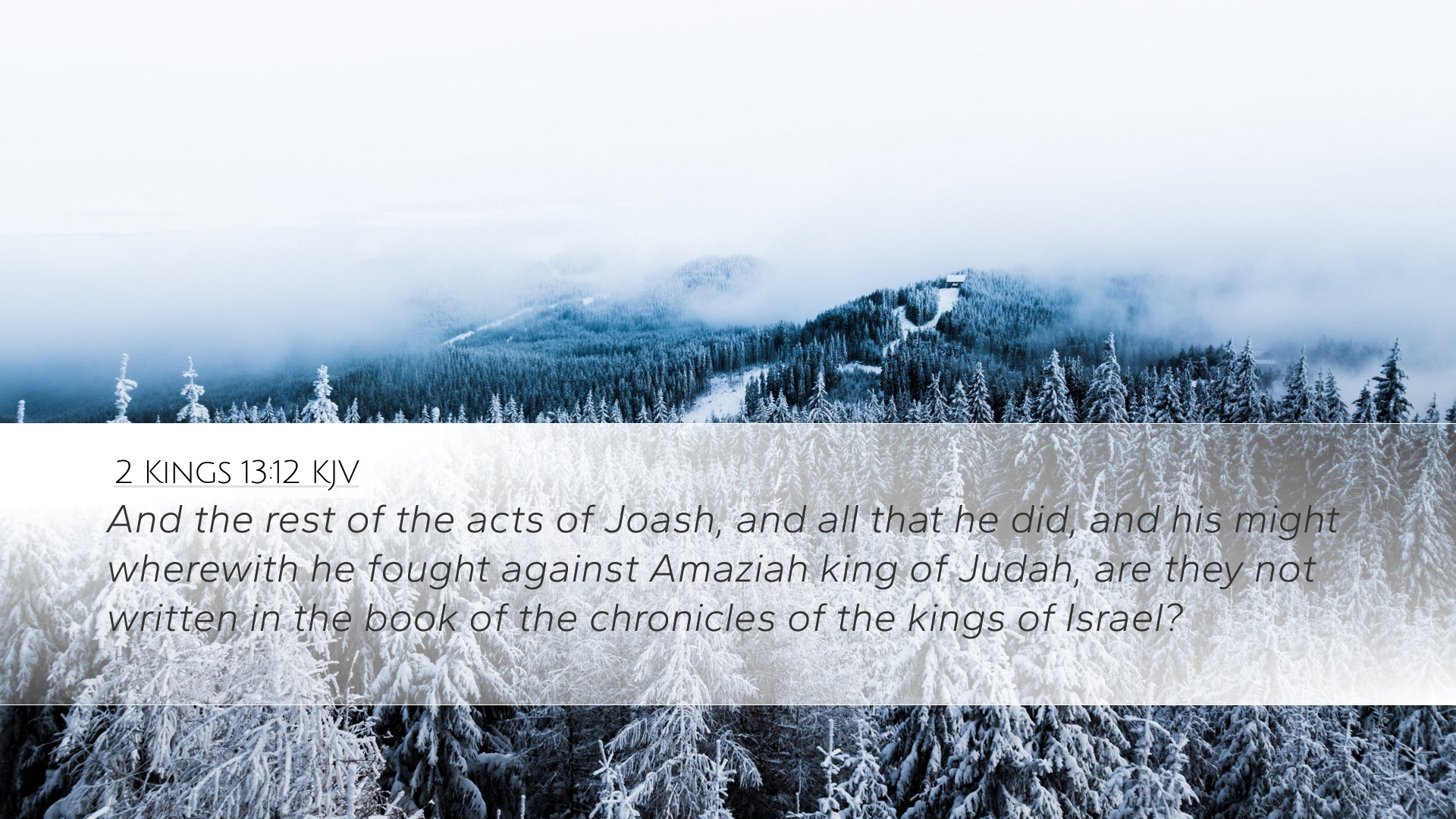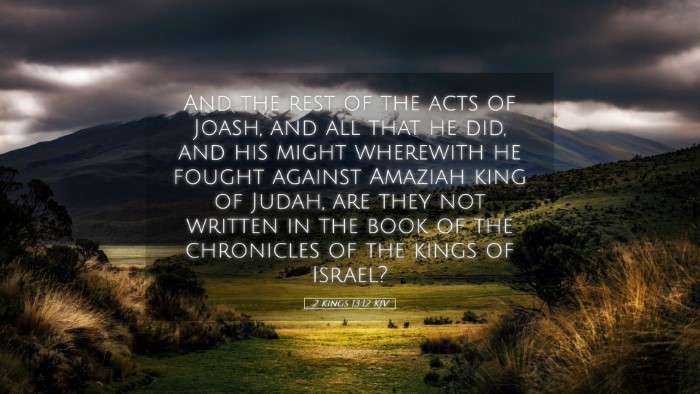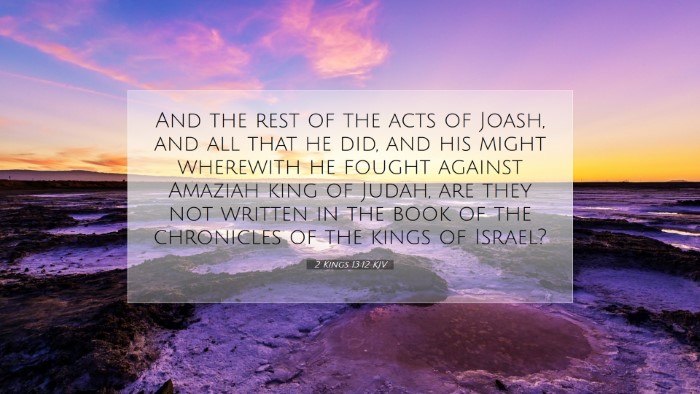Commentary on 2 Kings 13:12
2 Kings 13:12 states: "And Jehoash the son of Jehoahaz took again out of the hand of Benhadad the son of Hazael the cities which he had taken out of the hand of Jehoahaz his father by war. Three times did Jehoash beat him, and recovered the cities of Israel."
Contextual Analysis
This verse provides a critical glimpse into the fluctuating power dynamics of ancient Israel during the reign of Jehoash (also called Joash) and the ongoing conflict with Syria, epitomized by Benhadad. The historical framework surrounding this passage is essential for understanding the political, military, and spiritual implications of Jehoash’s reign.
Historical Background
- Israel's Condition: During the time of Jehoahaz, Israel was under considerable duress from Hazael of Damascus, resulting in losses and tribulations for the nation.
- Military Campaigns: Jehoash inheriting a weakened kingdom made efforts to reclaim lost territories, emphasizing the importance of military strength and divine favor in Israel's history.
Commentary Insights
Matthew Henry's Perspective
Henry notes the divine providence at work in Jehoash's military successes. He emphasizes that victories, like those achieved by Jehoash against Benhadad, were not solely due to human capability but were attributed to God's active engagement and support, as a fulfillment of the prophetic lineage established through Elijah and Elisha.
Albert Barnes' Insights
Barnes highlights the significance of military conquests as acts of restoration for Israel, framing Jehoash’s victories as a reprieve from the oppression experienced under Benhadad. He comments on the symbolic recovery of cities, a representation of Israel’s reclaiming of identity and sovereignty, which had spiritual implications for the people of Israel.
Adam Clarke's Analysis
Clarke provides rich detail on the geopolitical implications of the verse, explaining the significance of the cities that were reinstated under Jehoash. He emphasizes the historical continuity of conflict between Israel and Syria, decoding the military narrative as a foreshadowing of the volatility that characterized Israel's future.
Theological Implications
From a theological standpoint, this verse can be analyzed through various lenses that connect divine sovereignty, human agency, and the fulfillment of God's promises to Israel. The reclaiming of cities serves as a metaphor for spiritual restoration and the importance of repentance and obedience to God’s commandments.
Divine Favor and Sovereignty
- Affirmation of God's Promises: The military successes of Jehoash can be seen as an affirmation that God remains faithful to His covenant, even amidst Israel's failings.
- Role of Leadership: Jehoash’s actions illustrate the direct correlation between a leader’s obedience to God and the nation's well-being, underlining the critical role of righteous leadership in ensuring the collective fate of God’s people.
Lessons for Contemporary Application
This passage, steeped in historical and theological significance, bears several lessons for modern readers, particularly within church leadership, pastoral roles, and personal spiritual journeys:
- Importance of Prayer: Like Jehoash, leaders today must seek divine guidance and intervention through fervent prayer, acknowledging that true victories come from God.
- Restoration After Loss: The narrative encourages believers facing spiritual or communal loss to seek restoration actively, trusting in God’s promise to reclaim what was lost.
- Collective Responsibility: Jehoash’s campaign suggests the collective responsibility of believers to engage in spiritual warfare, reclaiming the moral and spiritual landscapes of their communities.
Conclusion
2 Kings 13:12 serves as a reminder of God's unwavering relationship with Israel, the profound influence of righteous leadership, and the importance of human agency within divine sovereignty. The victories of Jehoash resonate with the call for contemporary believers to actively participate in their spiritual restoration and faithfulness to God's enduring promises.


